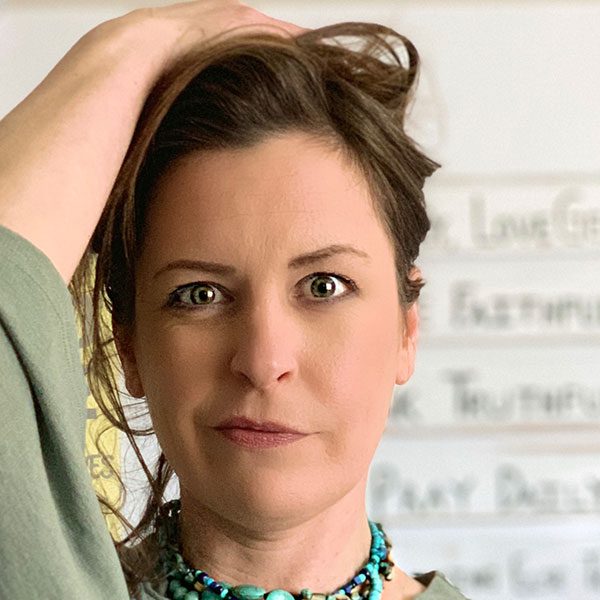Status is Seductive
What can a headline about a college bribery scandal tell us about our society and the pressures of conformity and status? Not only did it provide for us a gross embellishment of what privilege looks like, but it also provided for us a clear example of just how far up the food chain the effects and pressures of societal positioning reach. The seduction of status, the lure that was dangled and eventually hooked fifty individuals, was met with federal culmination this past month.
The Sin of Symbolism
The consuming instinct- this inclination toward status and symbolism, has produced for vying eyes a clear example of consequence for coveting. And not only do we get to see the after-effects of this dangerous game that we all willingly play, but we can shake our self-righteous fists at these celebrities and make ourselves feel better about the very same practices we display daily in our own lives.
I would like to approach these behaviors in such a way that it gives us all pause to reconsider our own participation within this system. I will spare you “love the sinner, hate the sin” rhetoric. If we must call this a sin of coveting, so be it. But what I am more concerned with is how we all personally participate in perpetuating this status grab and what we can do to interrupt these patterns.
Status Means Something
What am I talking about? Our love affair with status and symbolism. Our slobbering, drooling obsession with consumerism, materialism, and the need to be represented in such a symbolic way that the expression creates a story of prestige, power, fame, and abundance. We are caught up in a web of worth being represented by the clothing that we wear, the vehicles that we drive, the vacations that we take, the size of the stones in our jewelry, and whether or not we had our child’s fifth birthday party catered by a four-star restaurant. It’s a costly competition, not only for our bank accounts but for our mental mindset; not to mention, what kind of impact it has on our children and others in our social circle.
We chase after the idea that amassing objects and items, passports stamps and photo collections of food, new cars and remodeling projects; will provide for us a better, more fulfilling life. We think that granite counter tops do something magical to not only our kitchen, but to our position in life. That somehow, if my child gets into this school, I will finally be at peace and accepted by my inner circle. We hire landscapers to keep our lawns neatly groomed, so our neighbors think we care about our yards which must demonstrate how we care for ourselves.
We shove our children into every extra-curricular activity we can, because it will look good on a college application. (Never mind that some people just Photoshop their children’s heads onto other athlete’s bodies to they can say they play sports).
We make sure we are seen in church, in our fanciest of clothes, in our freshly washed vehicles (Jesus doesn’t want to see a muddy SUV in the church parking lot). We don’t do this for ourselves or for a meaningful contribution into the lives of our spouses or children, we do this to be seen by society as something.
Masked Identity
We allow that something to take over our identity. We wrap ourselves with a scarf of this status thinking it adds to who we are as a whole being. Instead, it’s only a mask we wear and we hide ourselves under status and symbolic representation because we think that this is the entrance to a life of meaning. And in some perverse way, it meets our needs.
What an imbalanced palette of essential needs focus this turns out to be. It sends a message that if you don’t have all of these diamond-studded boxes checked off; that if you don’t have all of these items on display, all of these pieces of paper that accredit you with something; that your life has less meaning and value.
Self-Expression isn’t Self-Indulgent
Sure, we actually have an essential human need to be recognized, and we have a need to be self-expressive, but are we failing to see what type of recognition and expression actually matters? We have put celebrities and the rich up on a higher level and now use them and their endeavors as our benchmark for success. The rich and elite and all of their wealth has allowed them to simply buy more recognition to hold the air in their inflated egos. Why would we want to mimic such competitive and trivial behavior? Some people are so status driven that their consumerism and their addiction to social rank ends up disconnecting them from all the servers of meaning and connectivity.
At our most basic exchange upon introduction, we fall victim to such a game by inquiring where one works or what one does for a living. Almost immediately, we impulsively repeat the patterns of society by injecting the substance of employment and ranking. Why not challenge this common curiosity with a deeper and more revealing question upon meeting someone: “What do you like to do in your spare time?” or “What are your interests and hobbies?” We never even ask that question of children anymore. We rarely focus on the present moment and genuinely inquire about the present person. We immediately revert to the standardized questions of habit. “What do you do for a living?” to an adult, “What grade are you in?” for the child. We want to immediately categorize and order people into a social ranking and we are almost unconscious of it.
Tell Me Who You Are, Not What You Do
Let’s try adopting a measure in which all of your conversations are personally focused on the human being and not the roles they play or the duties they perform. Telling me what you do for a living doesn’t offer to me any idea of the person you are.
To combat this, how about we reject the idea that our identity is represented by the things that we obtain and own? Let us stop the glamorization of consumerism and materialism. Let us consider adopting principles of minimalism and find contentment through connections in conversations instead of credit card transactions. Let’s reconsider how we speak to others. Let’s be aware that too often, we make our conversations as transactional as the rest of our roles.
The gift of conversation is the connection, not the applause you expect to receive. Let’s release each other from such an expectation. Let’s interrupt the status quo of chasing a representative status. We don’t need to place ourselves in a figurative elevated position of prestige when we are trying to simply connect with another. All we really need to do is grant attention to the other, listen with both ears, and embrace the exchange in the moment. Conversations should be about meaning, not about presenting trophies for all to ooh and ah over.












